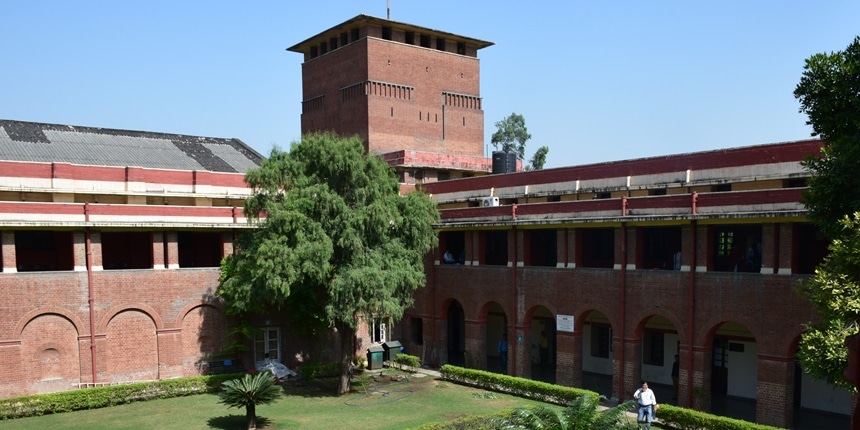DU allows students to pursue two degrees simultaneously at its colleges, departments
Press Trust of India | October 4, 2024 | 09:19 PM IST | 2 mins read
Students can pursue one programme in regular mode from DU colleges and other in ODL mode from DU SOL.
Colleges/Universites Accepting CUET Score
Download list of Colleges/ Universities Accpeting CUET/CUCET Score with Cut-OFFs
Download Now
NEW DELHI: The Delhi University has decided to allow students to pursue two degree programmes simultaneously within the university, according to an official notification. As per the notification, the students can pursue one degree in regular mode from the DU colleges or departments and the other in Open and Distance Learning (ODL) mode from the School of Open Learning.
Latest: Check DU PG Seat Allotment 2025 | Vacant Seats for Spot Round 4
DU PG Spot Round 2025: First Cutoff | Second Cutoff | Third Cutoff
DU PG 2025: Third Cutoff | Second Cutoff | First Cutoff
Don't Miss: NIRF DU Colleges Ranking
Under this new policy, the students already enrolled or in the process of enrolling in a degree programme at the university can opt to pursue two degrees at the same time. However, they will not be allowed to pursue two similar academic programmes at once, such as B.Com (Hons.) and B.Com (Pass), even if one of them is taken in the ODL format. Those who choose to pursue two degrees simultaneously will need to meet all academic requirements for both programmes separately. This includes attending classes, completing internal assessments, submitting assignments, giving presentations and meeting promotion criteria for each degree.
To avoid studying mandatory courses twice, the students are required to complete the compulsory courses for the programme they enrolled in first — whether it's regular or ODL Mode. The corresponding mandatory courses in the second programme will be replaced with appropriate alternatives. For example, if a student first enrolls in a regular programme, they will have to complete the mandatory courses for that programme. If enrolled in an ODL programme first, the compulsory courses for that programme will take precedence.
Dual degree
For undergraduate programmes, the students must complete mandatory courses such as Environmental Science (EVS) or Ability Enhancement Courses (AEC) for the programme they enroll in first. If these courses are also required in the second degree programme, they will be replaced with suitable alternative courses. For instance, a student pursuing two undergraduate degrees will study the AEC language and EVS courses as part of their regular programme, while for the second ODL degree, they can either choose a different AEC language or opt for a Skill Enhancement Course (SEC) or a Value Addition Course (VAC).
Similarly, if a student is pursuing two B.A. programmes, instead of repeating a Generic Elective (Language) course, they may select courses from the open Generic Elective (GE) pool to avoid duplication. The research theme or project work required in the fourth year of the UG programme will need to be different for each degree pursued. Furthermore, the students will not be allowed to combine credits earned from the two different programmes to obtain a major or minor in any discipline.
Follow us for the latest education news on colleges and universities, admission, courses, exams, research, education policies, study abroad and more..
To get in touch, write to us at news@careers360.com.